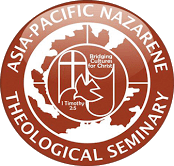- Resource Types
- Resource Languages
- Institutional Repository
 Visit the home page
Visit the home page
About Site Language
WHDL is viewable in multiple languages. Use the pull-down menu to select a language to view the site.
I changed my language, but I’m still seeing resources in the other languages?
If a resource or text has not been translated into your selected language, it will appear in the initially added language. We are always looking for help translating these resources. If you can help, contact us!
WHDL - 00011785


click to copy
Fallaria, A (2019). The use of mobile apps by selected millennials of Victory Christian Fellowship Ortigas to facilitate religious practices .
Fallaria, AprilThe use of mobile apps by selected millennials of Victory Christian Fellowship Ortigas to facilitate religious practices . , 2019
Fallaria, AprilThe use of mobile apps by selected millennials of Victory Christian Fellowship Ortigas to facilitate religious practices . , 2019
Fallaria, AprilThe use of mobile apps by selected millennials of Victory Christian Fellowship Ortigas to facilitate religious practices . , 2019
This study seeks to answer the main question: How do millennial members of Victory Ortigas use religious mobile apps in facilitating religious practices? This study looks at the perceived knowledge and attitudes of these millennials towards the use of religious mobile apps, the factors they consider in choosing religious mobile apps, their expectations in using the apps, and the ways in which these religious mobile apps impact the spiritual lives of the respondents. This study is guided by two theoretical frameworks, namely, the Uses and Gratifications Approach and the Religious Social Shaping of Technology. The Uses and Gratifications Approach is used to see how these millennials adapt the use of religious mobile apps in facilitating religious practices from the perspective of the users. In addition, the Religious Social Shaping of Technology is employed to see how the core values and beliefs of Victory as a church influence the way religious mobile apps are being adapted by these millennials. The study is a descriptive research that employs qualitative methods. The respondents engaged in a one-week recording of diary reports about their daily use of religious mobile apps. Semi-structured interviews were also conducted with the respondents to help provide clarifications about the diary reports and also to gain additional data that are needed but not covered in the diary reports. Then, document analysis was used to know the core values and beliefs of Victory. The responses from the diary reports and interviews were analyzed in light of Victory’s core values to know how they are reflected in the way millennials adapt religious mobile apps in facilitating religious practices. Based on the findings of this research, the respondents use five kinds of apps: Sacred Textual Engagement, Religious Media Outlet, Religious Wisdom and Leaders, Devotional Worship and Religious Games apps. Among these types, the most used apps are Sacred Textual Engagement apps. In relation with this, the activity that they mostly do with the use of religious mobile apps involve engagement with the Scriptures—Bible reading, devotions, and in-depth study. They also employ the use of religious mobile apps for evangelism, discipleship and equipping themselves for ministry. All these activities reflect the core values of Victory. They have indicated that religious mobile apps have helped them in these aspects of their spiritual lives. However, the core value of connecting with others was not reflected as much as the other values in the activities that the respondents engage in when using religious mobile apps. Non-religious mobile apps were what the respondents commonly use to connect and communicate with other people. The respondents have also identified the risks in using religious mobile apps which are distractions, technical errors, decrease use of the physical Bible, and security concerns. Despite these risks, the respondents keep on using the religious mobile apps because these apps satisfy their needs and expectations. Based on the millennials’ use of religious mobile apps, it can be concluded that they have developed certain degrees of dependency on apps in facilitating some religious practices. Though their uses actually reflect this dependency, the respondents still project that they are not actually dependent on apps by incorporating traditional forms of media into their activities. This reflects the conflict within these millennial Christians who are inclined towards the use of digital technology but would still want to preserve the traditions. After conducting this research, the researcher proposed that further studies on the following areas should be considered: (a) conduct a qualitative study on how other denominations use religious mobile apps in conducting religious practices; (b) conduct a qualitative study on how other age groups use religious mobile apps in conducting religious practices; (c) conduct a qualitative study on how non-religious mobile apps are used for conducting religious practices; (d) conduct a study comparing the use of the hardcopy of the bible and the use of bible apps; (e) conduct a study comparing the use of religious mobile apps by different generations; (f) conduct a study comparing the degree of use of different mobile apps among Christians; (g)conduct a qualitative study on how computer-mediated communication could lead to monasticism; and (h) development of survey questions and scales based on the findings of this research for qualitative study.
The copyright statement is available in the library.
29 Resources
This collection contains the theses in fulfillment of the degree of Master of Arts in Christian Communication at Asia-Pacific Nazarene Theological Seminary.
2012
2003
2019
2018
2020
2007
2019